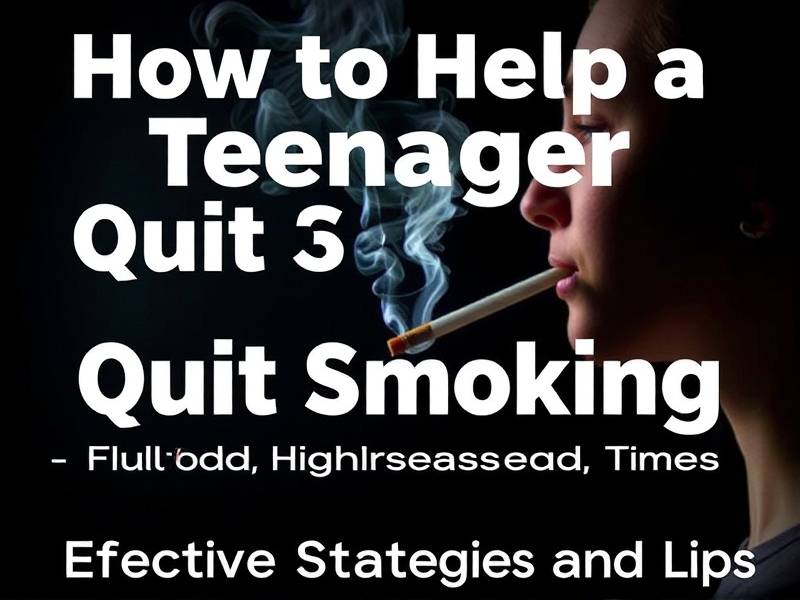How to Help a Teenager Quit Smoking: Effective Strategies and Tips
Understanding the Challenge
As a parent, guardian, or mentor, witnessing a teenager pick up smoking can be a distressing experience. It's crucial to approach the situation with empathy and understanding. Teenagers are often influenced by peer pressure and curiosity, which can lead to experimentation with smoking. However, with the right strategies and support, you can help them quit.
1. Open Communication
Establishing open lines of communication is key. Have honest conversations about the dangers of smoking, including its impact on health, finances, and social relationships. Encourage your teenager to share their thoughts and feelings without fear of judgment.
Listening Actively
Active listening involves fully concentrating on what is being said rather than just passively 'hearing' the message of the speaker. This means putting aside preconceptions, beliefs, or related thoughts that you might have had before and instead focusing on what is being said in the moment.

According to research by Harvard Medical School, active listening can improve communication between individuals and foster trust.
2. Set Clear Expectations
Make it clear that smoking is not acceptable in your household or circle of influence. Establish rules that reflect these expectations and enforce them consistently.
Role Modeling
Children learn by observing adults around them. If you smoke yourself, consider quitting as a family to set a positive example for your teenager.
3. Explore Alternatives
Help your teenager find healthier alternatives to smoking. This could include stress-reduction techniques such as yoga or meditation, or engaging in physical activities they enjoy.
Community Resources
Local community centers often offer programs specifically designed for teenagers looking to quit smoking. These programs may include group support sessions or one-on-one counseling.
4. Support Systems
Encourage your teenager to seek support from friends who do not smoke and from peers who have successfully quit. Group support can provide motivation and advice.
Online Communities
Online forums dedicated to quitting smoking can be an invaluable resource for teenagers looking for support from peers who understand their struggles.
5. Professional Help
If self-help methods aren't enough, consider seeking professional help from a healthcare provider who specializes in addiction treatment.
Therapy Options
Cognitive-behavioral therapy (CBT) has been shown to be effective in helping individuals quit smoking by addressing underlying issues that contribute to addictive behaviors.

Conclusion
Helping a teenager quit smoking requires patience, understanding, and consistent support. By employing these strategies and showing genuine concern for their well-being, you can make a significant difference in their lives. Remember that change takes time; celebrate small victories along the way to keep your teenager motivated on their journey towards a smoke-free life.
